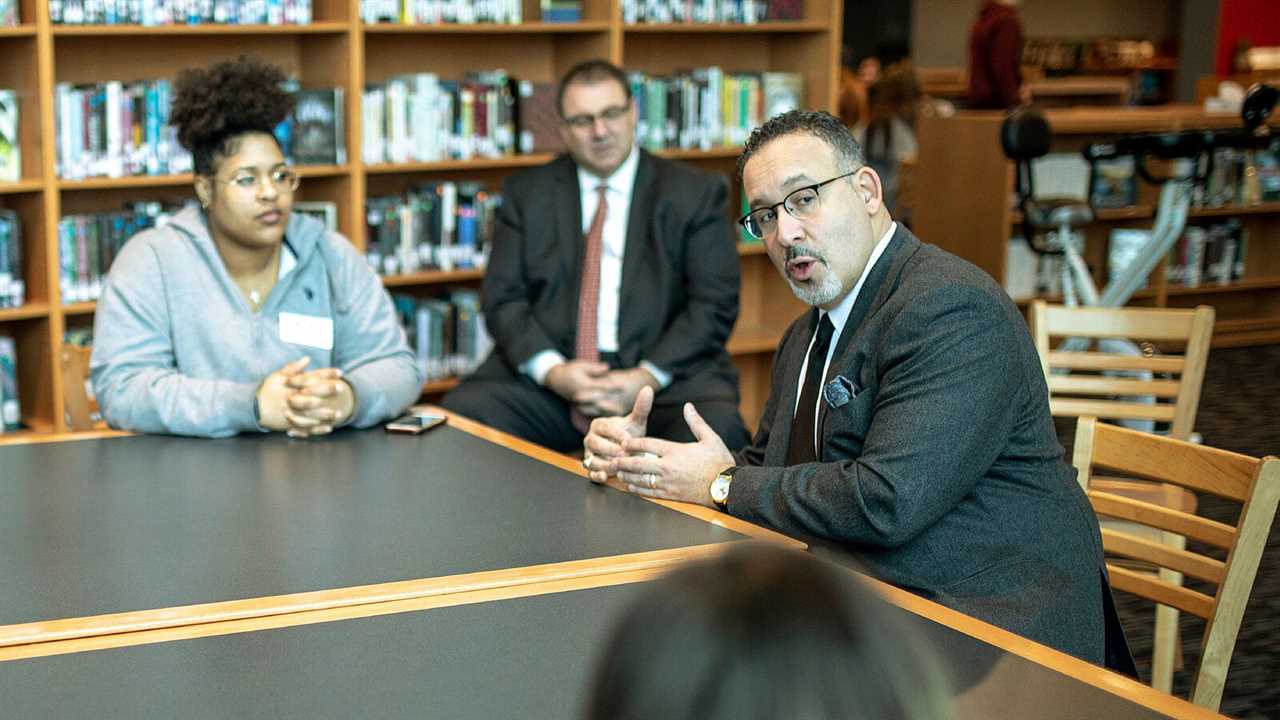
WASHINGTON — President-elect Joseph R. Biden Jr. is expected to nominate Miguel A. Cardona, Connecticut’s education commissioner, to serve as his education secretary, tapping a Latino to be the nation’s highest education policymaker, according to two officials familiar with his plans.
Dr. Cardona, if confirmed by the Senate, would be tasked with bringing the elementary, secondary and higher education systems back from the disruption caused by the coronavirus pandemic and repairing the considerable damage done. School districts, colleges and universities have hemorrhaged money as they struggled with distance learning, retrofitted buildings to make them somewhat safer, and lost students, especially foreign university students who had been paying full tuition.
The pandemic has also widened the achievement gap between affluent students and poorer pupils who fell behind as they suffered through deficient internet access and difficult home-learning conditions.
The selection of Dr. Cardona would fulfill Mr. Biden’s campaign promise to appoint a diverse cabinet and a secretary of education with public school experience — a blunt juxtaposition to President Trump’s billionaire private-school champion Betsy DeVos. The official announcement is expected as soon as Tuesday.
Dr. Cardona was appointed Connecticut’s first Latino commissioner of education in 2019 after two decades of experience as a public school educator, starting in a Meriden, Conn., elementary school classroom, according to his official biography. He also served as a principal for a decade, among the youngest in the state, and as assistant superintendent and adjunct professor at the University of Connecticut.
Dr. Cardona emerged as a front-runner for the position in recent days, beating out teachers union leaders, higher education academics, and superintendents of large, urban school districts. He garnered the endorsements of important stakeholders in the Biden campaign, including congressional leaders, teachers unions, community groups and one of Mr. Biden’s early preferred candidates, Linda Darling-Hammond, who headed the campaign’s education transition team but took herself out of the running.
Even in the final hours before Mr. Cardona’s likely nomination became public, it was jeopardized by some groups pushing for a Black woman or Latina, according to several people familiar with deliberations.
In a letter to Mr. Biden, the Congressional Hispanic Caucus pressed for more Latino representation in his cabinet and wrote that it was “proud to offer our enthusiastic endorsement of Mr. Miguel Cardona,” and said he was up for the challenge of fulfilling Mr. Biden’s immediate and long-term policy goals.
“We know that all schools, from the elementary level to the college level, face a challenging road ahead as we work to recover from the pandemic,” the caucus wrote in its letter. “It is clear that Mr. Cardona’s record of accomplishments demonstrates that he is capable and qualified to lead the Department of Education. Further, as a Puerto Rican leader he will bring a valued and diverse voice to the cabinet.”
In the letter, the caucus promoted his experience as an educator who has worked at every level of a public school system and his background as “Spanish-only speaking student when he first started school,” who understands the plight of English language learners, among those most at-risk groups for learning loss during the pandemic.
In interviews, Dr. Cardona has emphasized his parents’ Puerto Rican roots and his upbringing in Meridien’s public housing and education system as experiences that have anchored his career.
“It’s not lost on me, the significance of being the grandson of a tobacco farmer who came here for a better life, who despite having a second grade education was able to raise his family and create that upward mobility cycle,” he said in a 2019 Connecticut Mirror profile.
While serving as a principal of an elementary school in Meriden, he was named principal of the year in 2012, and he was co-chair of the Connecticut Legislative Achievement Gap Task Force. In the task force’s 2014 report, he wrote that “addressing the achievement disparities in Connecticut is more than just our moral obligation. It makes fiscal sense,” citing that the costs of remediation and incarceration were greater than the cost of educating students.






